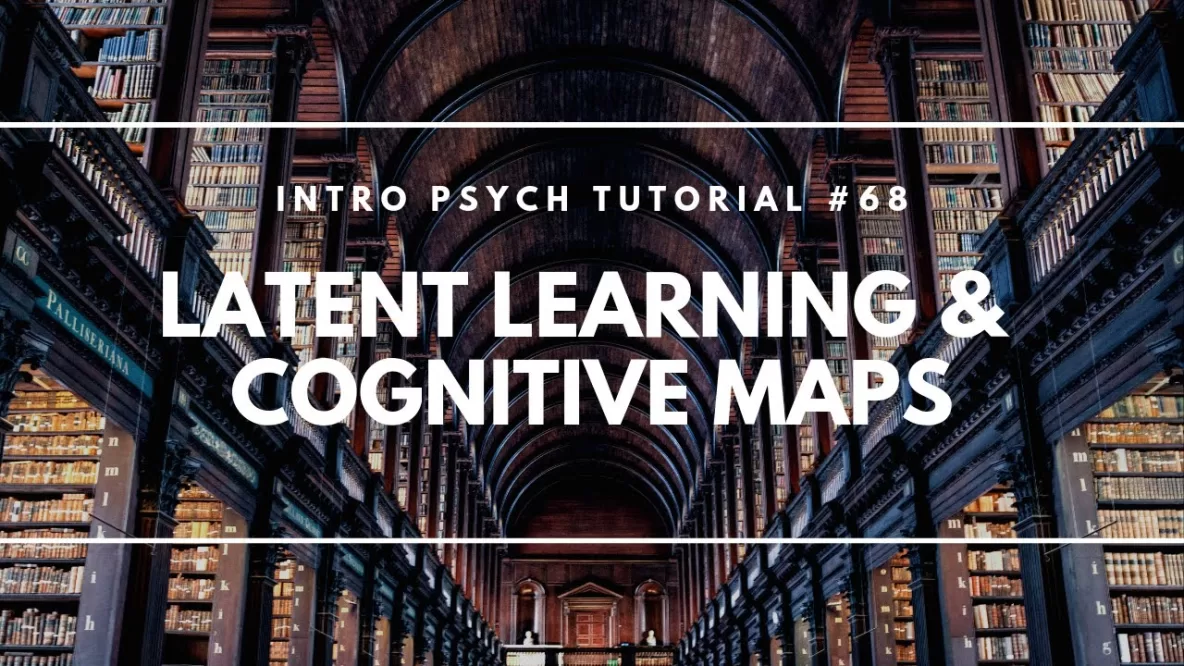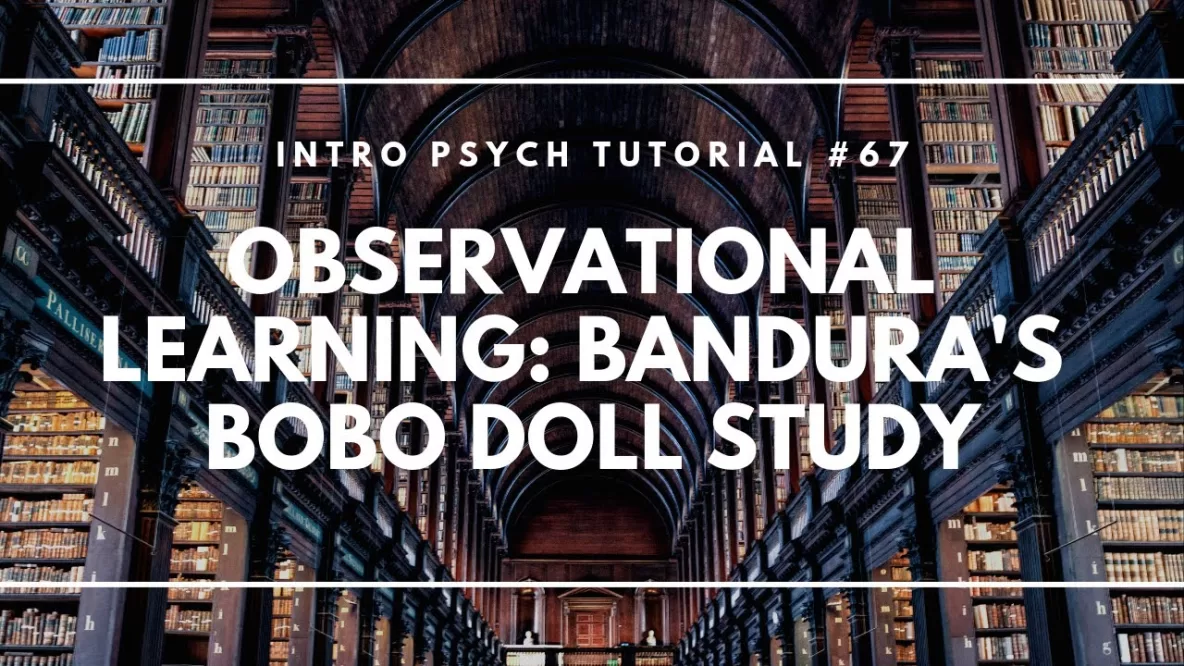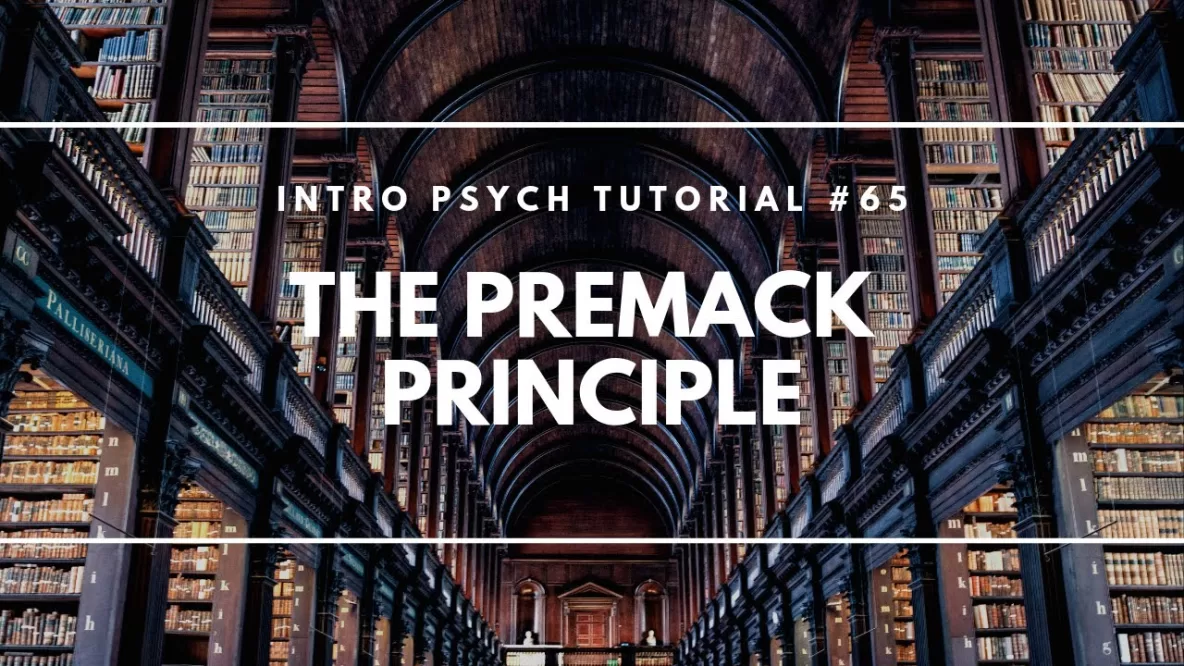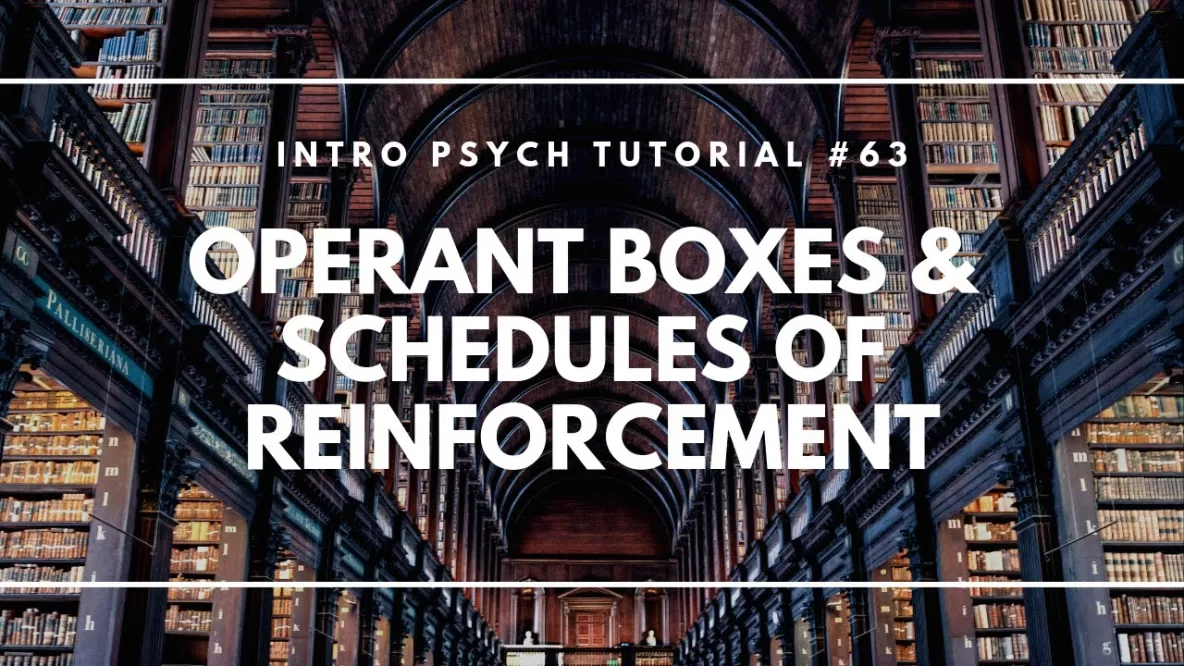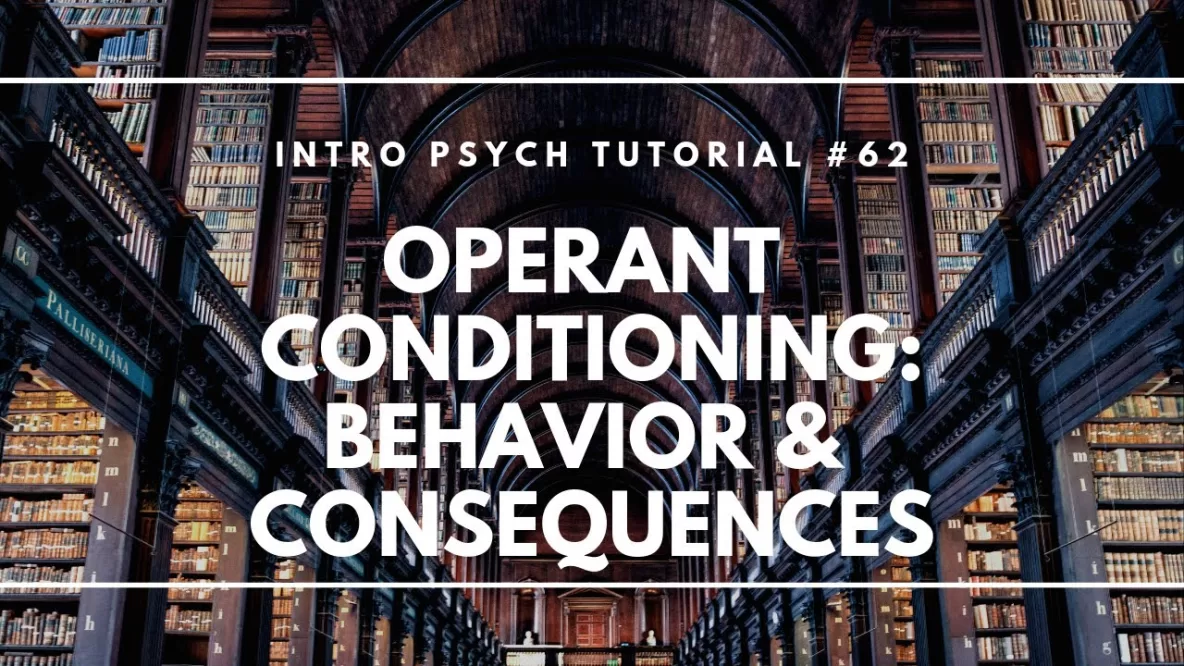In this video I introduce language acquisition as a type of learning that isn’t explained well by the behaviorist principles we saw in the unit on learning theory. In the next few videos we’ll be looking at linguistics and language … Read More
Abstract Learning & Insight Learning
In this video I describe abstract learning and insight learning as types of learning that both require internal cognitive processing. Abstract learning demonstrates how mental concepts and categories relate to stimulus generalization while insight learning demonstrates the use of mental … Read More
Latent Learning & Cognitive Maps
In this video I explain the concept of latent learning using two studies conducted by Edward Tolman and colleagues. Latent learning refers to learning that occurs without reinforcement and isn’t demonstrated until an opportunity arises. I also describe the idea … Read More
Observational Learning: Bandura’s Bobo Doll Study
In this video I explain Albert Bandura’s famous “Bobo Doll” study on observational learning and aggressive behavior. In this study, adults modeled aggressive playing behaviors with a Bobo doll which were then performed by children who had simply observed the … Read More
The Premack Principle
In this video I describe the Premack Principle which refers to the idea that behaviors can be high or low probability which in turn means that high probability behaviors can serve as reinforcement for low probability behaviors. Don’t forget to … Read More
Chaining, Shaping, & Instinctive Drift
In this video I describe the how conditioning to be used to train more complex behaviors. This can be accomplished with chaining, which involves linking together previously conditioned behaviors, and shaping, which involves reinforcing successive approximations of a desired behavior. … Read More
Operant Boxes & Schedules of Reinforcement
In this video I describe the operant boxes used by Skinner (often called “Skinner boxes”) to study the relationship between different schedules of reinforcement and behavior. Then I describe 4 possible schedules of reinforcement including fixed-ratio, variable-ratio, fixed-interval, and variable-interval, … Read More
Operant Conditioning
In this video I explain the difference between classical conditioning and operant conditioning. Next I explain Thorndike’s work with cats in puzzle boxes which led to his Law of Effect. This approach was greatly expanded by B.F. Skinner’s work on … Read More



